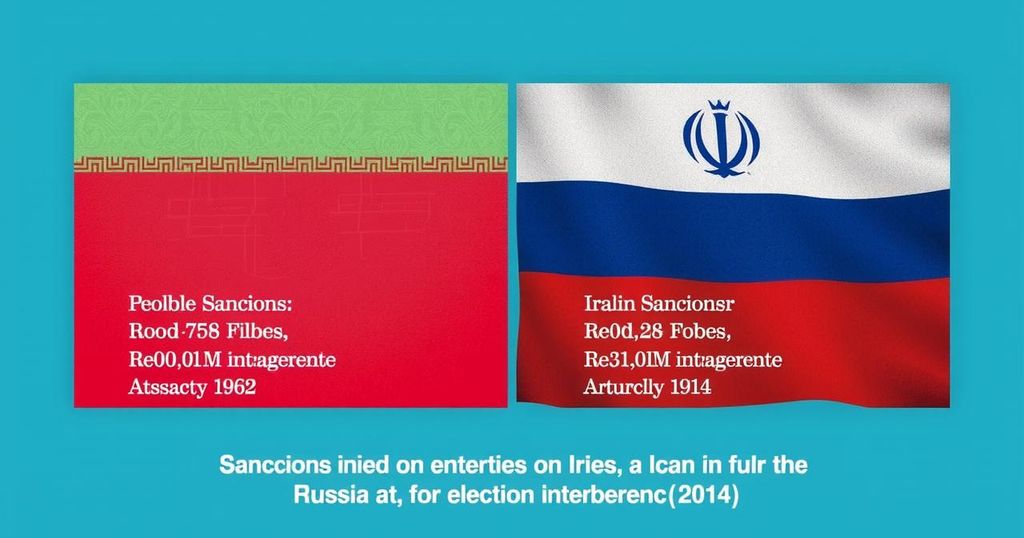The United States has sanctioned Iranian and Russian entities accused of trying to interfere in the 2024 elections, alleging they aimed to create socio-political unrest and influence voters. The sanctions target activities linked to disinformation and the manipulation of video content regarding electoral candidates, reinforcing the U.S. commitment to protecting democratic processes from foreign interference.
On Tuesday, the United States government enacted sanctions targeting entities in both Iran and Russia, which were accused of attempting to meddle in the upcoming 2024 U.S. election. In a statement released by the U.S. Treasury Department, officials indicated that these entities included a subsidiary of Iran’s Revolutionary Guards Corps and an organization linked to Russia’s military intelligence agency. Their alleged objective was to incite socio-political discord and sway the U.S. electorate during the electoral process.
Specifically, the Cognitive Design Production Center, based in Iran, initiated influence operations as far back as 2023, while the Moscow-based Center for Geopolitical Expertise (CGE) was reported to have disseminated disinformation regarding electoral candidates, including manipulating videos to generate false accusations against a vice-presidential candidate. The Treasury did not disclose the identity of the targeted candidate.
In response to these aggressive actions, Bradley Smith, the Acting Under Secretary for Terrorism and Financial Intelligence at the Treasury Department, emphasized the severity of such campaigns, stating that “The Governments of Iran and Russia have targeted our election processes and institutions and sought to divide the American people through targeted disinformation campaigns.” He assured that the United States would remain vigilant in countering efforts by adversaries who seek to undermine democratic processes.
This recent sanction signifies a renewed focus on safeguarding American electoral integrity from foreign interference, underlining the sustained geopolitical tensions influencing national security strategies.
The sanctions imposed by the United States reflect increasing concerns over foreign interference in its electoral processes, particularly from adversarial nations like Iran and Russia. Historically, both of these countries have been implicated in various forms of disinformation and influence campaigns aimed at destabilizing Western democracies. The role of social media and digital misinformation has been pivotal in recent elections, prompting U.S. officials to respond decisively to protect the integrity of their democratic institutions from external threats.
The sanctions serve as a clear message from the United States that foreign entities, particularly from Iran and Russia, will not be tolerated in their attempts to influence American elections. The decisive actions taken by the U.S. Treasury underscore the ongoing commitment to safeguarding democratic processes. As geopolitical tensions remain high, vigilance against disinformation campaigns becomes increasingly crucial to maintaining electoral integrity.
Original Source: www.deccanherald.com






